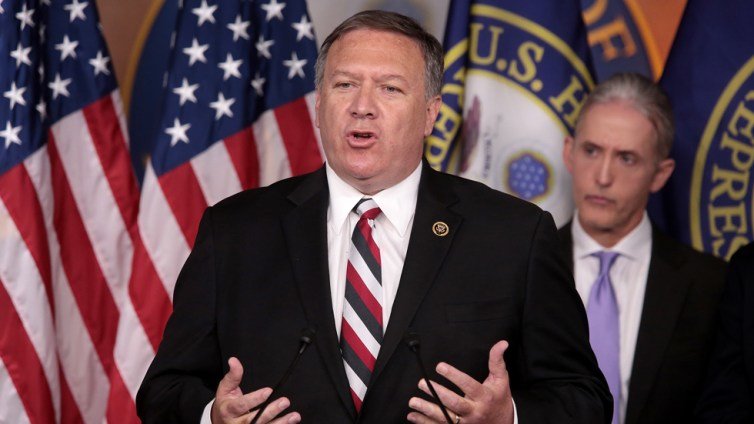Blaming Iran for the sufferings of Yemenis is laughable

Mike Pompeo, the U.S. secretary of states, claimed on June 28 that Iran is “prolonging suffering of the Yemeni people” by supporting Houthi rebels.
The new U.S. leadership is resorting to every ploys and lies to demonize Iran. The new project of Iranophobia has intensified since Pompeo confirmed as secretary of state in late April. He seems to be superseding in animosity against Iran in comparison to John Bolton, the national security advisor to Trump.
Pompeo’s degree of hatred toward Iran was fully laid bare during his speech at the Heritage Foundation on May 21 in Washington.
It is quite clear to the entire world that it is Saudi Arabia and the UAE - the United States’ close friends - which have created human tragedy in Yemen by strangulating and starving millions of people in the poor Arab country. Maybe it is the easiest way to blame Iran for what Washington’s friends have been doing.
How can Iran, even if it wanted, to help Yemeni rebels while the country is besieged by the Saudi-led alliance. Attempts to link the miseries of the Yemenis to Iran can never hide the crimes being committed by the Saudi-led coalition.
In addition to efforts to demonize Iran, Pompeo probably wants to facilitate and justify the sale of more arms to Saudi Arabia and the UAE. Pompeo’s boss, Donald Trump, who has a covetous eye on the immense wealth of Saudi Arabia and the UAE, should be happy with the war on Yemen because he wants to sell more and more “beautiful” weapons to these two wealthy states in order to say that he is creating jobs in the United States.
However, Pompeo and other hawks in the U.S. cannot fool the public opinion about the realities of the Yemen war. The people around the world know that it was Saudi Arabia that started the war against Yemen in March 2015 and it is Saudi Arabia along with it coalition partners which erroneously think that they should pound Yemen until it surrenders.
If the U.S. had been really concerned about the sufferings of the Yemenis it would have put pressure on Saudi Arabia to end the war. The irony is that the U.S. itself is an accomplice in this tragedy. It not only sells arms to Saudi Arabia and its coalition partners, it also shares intelligence with them and refuels their fighter jets in mid-air.
Pompeo also claimed that Iran’s support for Houthis has enabled Yemen to launch attacks on Saudi Arabia and the UAE. This statement shows the Saudi-led coalition, despite support by the U.S., has not only failed to defeat Yemenis it has also made them more resilient and stronger.
History is a great lesson. If the United States, along with a support by NATO, after 17 years had succeeded to bring the Taliban to its knees in Afghanistan then it could have been imagined that the Saudi-led coalition may one day win over the Yemenis. Now it is the U.S. which is begging talks with the Taliban but the Taliban reject it.
People familiar with the Yemeni society say that the people in this poor country are even more battle-hardened than Afghans who fought the Soviets in the 1980s and finally made the Soviets to leave the country in disgrace.
In the light of these facts vicious attempts by Pompeo to fault Iran for the human tragedy in Yemen are flawed, lamentable and also laughable.
